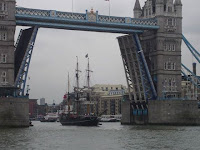In 1783, a scandal in the slave trade of Great Britain rocked the economy. The court case that ensued sparked righteous outrage throughout the country. It was the beginning of the end of slavery. And the outrage that had gripped the general public had nothing to do at all with slavery.
The slaver Zong was a Dutch three master ship sailing under Dutch flag until it was bought by a syndicate of British merchants in 1781. The syndicate was headed by William Gregson who was responsible for shipping almost 60,000 slaves from Africa to the colonies during his lifetime. The canny merchant hadn't bought the ship empty; it contained a cargo of 244 slaves and was lying off the coast of West Africa.
There, the ship took on a passenger with a strong stomach. Robert Stobbs was a former colonial governor and one time captain of the slaver Black Joke. After the transfer in ownership, the Zong sailed slowly along the coast, taking up 198 more slaves in dribs and drabs over the following months. When the cooper fell ill, and the water barrels fell into disrepair before the ship even left the coastal waters before the African coast. While crossing the Atlantic, the appearing leaks fed more drinking water to the ocean than to crew or cargo.
When the captain fell ill, too, Stubbs took command over the head of the first mate. When water supplies ran started running dangerously low, the cheap cargo went overboard first, i.e. 54 women and children. Their chains made sure that they were unable to swim. 68 male slaves followed suit over the next few days, all to make sure that the crew didn't have to ration the water. When the ship finally arrived at its Colonial destination with its diminished cargo, the owners sued their insurer over the loss of goods.
Olaudah Equiano was a former slave; he was highly literate and well connected inside the trade and outside of it. When he got wind of the legal case and the true story behind it, he contacted Granville Sharp; the latter was the son of a clergyman, worked as a clerk in the Ordnance Office in London, and was a rabid abolitionist. The legal case seemed the perfect case to take on the slave trade through the very legal system that protected it.
Sharp became an adviser to the insurer's legal team. In court, they started using what amounted to a foreign language for judge and defending lawyers alike: terms like human rights and racial equality kept hammering away at judge and panel. All this was done in the holy interest of not having to pay out any insurance money. The insurer had even bribed a key witness: Robert Stubbs appeared in court as the neutral bystander unable to do anything to save the cargo. The trial descended into farce over such trivial matters as who was in charge and how many slaves had really been thrown overboard. A retrial was set, but it probably never took place.
From the courtroom, the trial's progress was leaked to the public. People promptly went up in flames. The sheer greed behind the insurance claim and the way it had come about by sheer mismanagement inflamed the public even outside the mercantile class. Slavery was not an issue. Be real! Slavery was an economic reality, a national necessity, like nuclear power plants, cars, and bankers’ bonuses. The economy would collapse without, we all know that.
What about the atrocity of throwing the slaves overboard to drown? That, too, was not an issue. It was the economical fact of slavery itself. In an average voyage, about half the slaves that left Africa would reach their destination alive. The rest would have been disposed of on the way.
The history of the Zong has been captured by James Walvin, a history Professor at the University of York. The book is refreshingly short and to the point while still containing a lot of additional information about the slave trade. The Zong by James Walvin was published by Yale. Go buy it, you won't regret it.
Further Reading
The President's Slaves
The White Sex Slaves of 1874
The Pirates of Barbary Coast








No comments:
Post a Comment